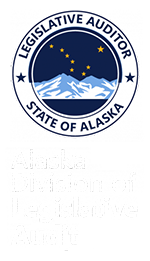Summary: The report recommends several ways that the State can maximize the amount of federal matching funds available. In some cases, the State may cut the amount of general funds needed to provide existing services to Alaskans by increasing the share that the federal government provides. In other cases the State could expand services by providing additional federal matching funds. However, this would require the State to expend additional general funds. The report also highlights other ways that the department can increase revenue, such as improving fee structures, implementing new fees, and looking for new ways to collaborate with tribal entities and other groups.
Click here for the table of all findings for maximizing revenue
Click here for the table of all recommendations for maximizing revenue
Key Recommendations for Maximizing Revenue
- The department should transform the State’s current Medicaid 1915 waivers and implement the 1915(i) and 1915(k) options to refinance and improve community behavioral health service delivery.
(Recommendation 3.0.6)
(Recommendation 10.2.3)
A 1915(i) option expands the home and community based services eligible for Medicaid reimbursement by redefining the standards of eligibility to receive services. Under a 1915(i) option, individuals can receive the array of services even when they do not require an institutional level of care; 1915(k) authorizes the Community First Choice program, a Medicaid state plan option that encourages the use of home and community based service by supporting a six percent increase in the federal medical assistance percentage and reimbursing states for additional attendant services. Home and community based services help to assist individuals in need of a lower level of care to receive services at home, rather than in a higher level of care facilities at greater expense to the State. The report estimates that implementing the 1915(i) and 1915(k) options could achieve $24 million in savings annually.
- The department should consider the pursuit of a Medicaid 1115 waiver to broaden the array of behavioral health services financed by Medicaid.
(Recommendation 3.0.7)
Section 1115 waivers authorize demonstration and pilot projects as opportunities for states to improve their Medicaid programs. The amount of additional funding is variable and depends on specific parameters agreed upon by the State and the Centers for Medicare and Medicaid Services, but it is estimated that Alaska could achieve $10-$15 million in savings through a 1115 waiver. Regardless of the amount of funding received, the State will not have an increase in costs, as 1115 waivers are required to be budget neutral.
- The State should develop local sources of funding for behavioral health initiatives.
(Recommendation 3.0.9)
The department currently requires a 25 percent community match of all state funding for community behavioral health grants. The State should also explore a tax or assessment on hospitals. By levying a tax on hospitals within a municipality and dedicating that tax to the State’s share of behavioral health services Medicaid payments, the department will receive additional federal matching funds that can be redistributed within the provider community, so long as the redistribution benefits the local safety net hospital. This financing mechanism would expand the funds available for behavioral health infrastructure development to include the revenue from the provider tax, decreasing the department’s dependence on the general fund for infrastructure improvements.
- The department should amend its grant and contract requirements to more strongly incentivize behavioral health providers to leverage third party insurance.
(Recommendation 9.2.4)
Making grant approval contingent on demonstration of consistent screening for third party insurance and eligibility would strengthen the ability of the department’s grants and contract procurement process to adequately leverage insurance.
- The department should improve its efforts to identify veteran recipients of behavioral health services who may be eligible for services through the Alaska veterans affairs healthcare system.
(Recommendation 10.2.2)
Services provided through the Alaska veterans affairs healthcare systems are funded by the federal government as part of its obligation to veterans. Making sure that veterans services are properly billed to the Alaska veterans affairs healthcare systems reduces dependency on state-funded direct care. Estimated savings/cost avoidance is up to $1 million annually.

